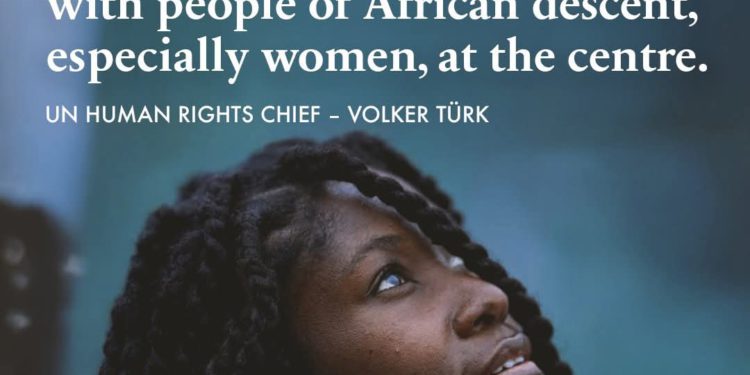UN Permanent Forum’s Fourth Session Reinforces Demands for Reparatory Justice for People of African Descent
The Fourth Session of the United Nations Permanent Forum on People of African Descent (UNPFAD), held from May 29 to June 2, 2023, in New York City, resonated with powerful calls for reparatory justice for the historical and ongoing injustices faced by people of African descent globally. The forum, established in 2021 following the killing of George Floyd and subsequent global protests against racial injustice, serves as a platform to address the multifaceted challenges confronting this community, ranging from systemic racism and discrimination to the legacy of slavery and colonialism. Reparations, a topic often met with resistance and complex debates, took center stage during this session, with participants emphasizing its necessity as a crucial step towards achieving racial equality and justice. The Forum stressed that reparatory justice encompasses not simply financial compensation, but also a comprehensive approach involving acknowledgment, apology, restitution, rehabilitation, and guarantees of non-repetition.
The deliberations of the Fourth Session underscored the urgent need for reparatory justice as a fundamental human right owed to people of African descent. Speakers from various backgrounds – activists, academics, government representatives, and members of civil society organizations – shared compelling evidence of the enduring impacts of slavery, the transatlantic slave trade, colonialism, and their contemporary manifestations. They highlighted how these historical injustices continue to fuel systemic racism, discrimination, and inequality across numerous spheres, including education, healthcare, housing, employment, and the justice system. The Forum underscored the intergenerational trauma inflicted by these past atrocities, emphasizing the deep psychological, social, and economic wounds that continue to impede the progress and well-being of African descendant communities. The global scope of the issue was also emphasized, recognizing that the legacy of these injustices transcends national borders and requires international collaboration to address.
Discussions surrounding reparatory justice delved into its multifaceted nature, moving beyond the narrow focus on financial compensation to encompass a more holistic and transformative approach. Participants highlighted the critical importance of acknowledging the historical truths and harms inflicted upon people of African descent. This acknowledgment, they argued, is a prerequisite for authentic reconciliation and healing. Formal apologies from states and institutions that benefited from these injustices were identified as a critical element of the reparatory justice process. Furthermore, the Forum emphasized the need for various forms of restitution, which could involve the return of stolen lands and artifacts, investment in education and economic development programs for affected communities, and measures to address the racial wealth gap. Rehabilitation, focusing on addressing the psychological and emotional trauma resulting from historical injustices, was also recognized as a crucial component. Finally, the Forum stressed the importance of establishing guarantees of non-repetition to dismantle systemic racism and prevent future atrocities.
The Fourth Session provided a platform for exploring different models and approaches to reparatory justice, drawing upon both historical precedents and ongoing initiatives. Participants examined the experiences of various countries and regions grappling with this issue, sharing best practices and lessons learned. The Caribbean Community’s (CARICOM) ten-point plan for reparatory justice, which outlines specific demands for former colonizers, served as a notable example of a regional approach. The Forum also highlighted the importance of community engagement and participation in shaping reparatory justice processes, ensuring that they are inclusive and responsive to the specific needs and priorities of affected communities. Furthermore, the discussions touched upon the crucial role of education in raising awareness about the history of slavery, colonialism, and their ongoing impacts, as well as promoting understanding and support for reparatory justice.
The Forum faced the complex question of who should bear the responsibility for providing reparations. While historical responsibility clearly rests with the states and institutions that perpetrated and profited from slavery, the transatlantic slave trade, and colonialism, the question of contemporary responsibility is more nuanced. Participants acknowledged the ongoing role of systemic racism and discrimination in perpetuating the disadvantages faced by people of African descent, emphasizing the responsibility of contemporary governments and institutions to address these issues. The Forum stressed the need for a multi-stakeholder approach, involving governments, international organizations, civil society, the private sector, and individuals, to collaboratively contribute to reparatory justice efforts. The interplay between historical and contemporary responsibility underscores the need for a comprehensive approach that addresses both past harms and ongoing injustices.
The Fourth Session of the UNPFAD concluded with a renewed commitment to advancing the cause of reparatory justice for people of African descent. The Forum served as a powerful platform for amplifying the voices and demands of this community, highlighting the urgency and moral imperative of addressing historical injustices and their contemporary manifestations. The discussions produced concrete recommendations and action points for states, international organizations, and civil society to implement, laying the groundwork for further progress towards achieving racial justice and equality. While recognizing the complexities and challenges inherent in the pursuit of reparatory justice, the Forum reaffirmed its unwavering commitment to this critical endeavor, recognizing it as a fundamental step towards healing, reconciliation, and building a more just and equitable future for all.
Share this content:












Post Comment